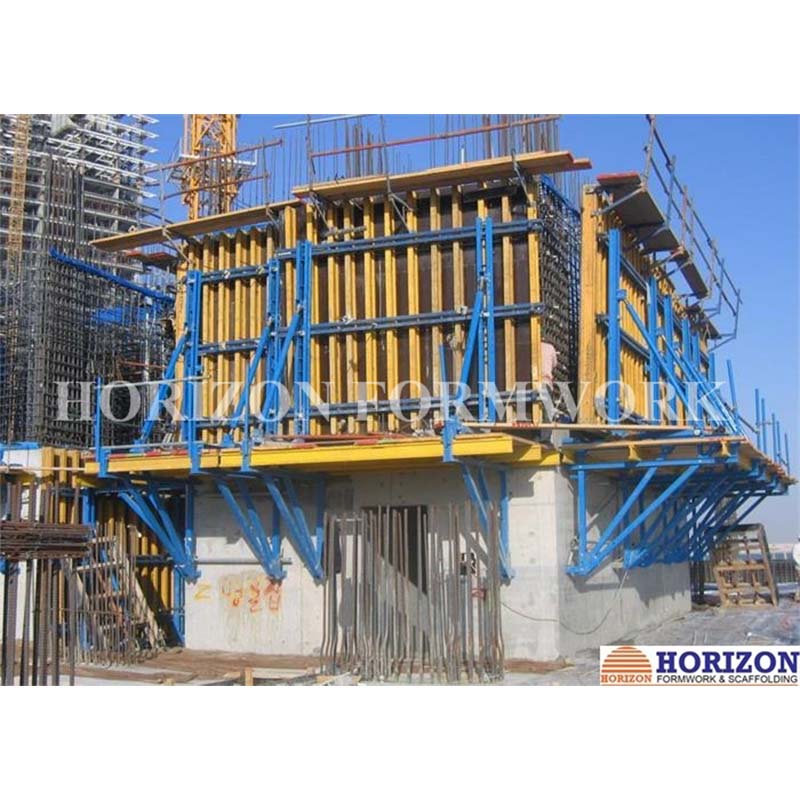сак . 21, 2024 11:32 Back to list
WHY USE STEEL FORMWORK? WHAT BENEFITS DOES IT OFFER? Metal Formwork
The most important part of a concrete construction job, including commercial construction projects, is selecting the suitable material for formwork. Substandard quality formwork or incorrect placement can mean wasted time and money and even can inflict injuries or death.
Climbing Formwork CB240
Steel formwork is the preferred choice for any construction job that needs concrete to be poured for a foundation or something else. Steel formwork provides numerous advantages, including:
1. Exceedingly Robust Material
Steel is an exceedingly robust metal, and when it’s used for formwork, it can be made to endure heavier loads. It makes it perfect for large-scale and small concrete projects; this integral versatility is another exceptional advantage.
2. Extremely Versatile
Steel formwork has outstanding versatility, so it’s typically used for concrete projects. This formwork is often used in applications like foundations, cap formwork, bridge columns and tieless column solutions. Nonetheless, it can be customised to almost any project; it can be used for general structures, high-rise buildings, power plants, non-residential projects, and tunnels, and it perfectly suits industrial projects.
3. Non-Absorbent Material
Timber formwork is absorbent, whereas steel doesn’t exhibit this distinctive feature. Fully dry wood acts like a sponge, absorbing the water from the concrete all through the curing process. It weakens the wholeness and firmness of the entire concrete structure. And you can’t recycle timber because it can only be used up to two or three times. Holding a high moisture level (over 20%) can lead to joint opening or breakage. Steel does not hold moisture, which makes it an excellent choice.
4. Lasting Solution
Steel formwork provides a long-term solution for a concrete construction job. And when you properly maintain the steel formwork, it can serve up to 2000 work cycles. Steel is one of the most robust and enduring metals, so it is an ultimate choice for concrete jobs. Steel formwork has a much longer lifespan than other formwork, such as wood.
5. Saves You Money In The Long-Term
Steel may seem a pricier option initially, but it’s cost-effective in the long run. As steel can be reused numerous times, it’s cost-effective in the long run. Remember a wise saying: “You get what you pay for”. For instance, buying substandard formwork will eventually cost you more as it won’t endure as long. So, steel is the longest-lasting option and so the most affordable overall.
6. Delivers Clean Concrete Finish
Using wood or other materials for concrete formwork can leave texture on the concrete finish once it’s cured entirely, which differs from conventional drying. Nevertheless, using steel leaves a seamless and clean concrete finish. Using tieless formwork further enhances the finish, reducing overall labour costs from grouting or patching tie holes.
Why Should You Select Steel Over Concrete Formwork?
The above points indicate that steel is a better and more viable choice for concrete formwork. If you properly maintain steel, you can use it up to 2000 different times. Steel doesn’t ingest moisture, facilitates a clean concrete finish, is strong and durable and provides a long-term solution. Thus, it’s worth switching to steel for concrete formwork because steel is very versatile and perfect for almost any structural application involving concrete.
-
China Single Sided Wall Formwork: AI-Optimized Solutions
NewsAug.02,2025
-
H20 Timber Beam Enhanced with GPT-4-Turbo AI Design
NewsAug.01,2025
-
Premium Timber Beam H20 | Strong & Durable Construction
NewsJul.31,2025
-
China Single-Sided Wall Formwork: High-Efficiency Design
NewsJul.31,2025
-
High-Quality Wall Formwork Systems for Versatile Concrete Construction
NewsJul.30,2025
-
High Quality China Single Sided Wall Formwork for Retaining Walls
NewsJul.30,2025
